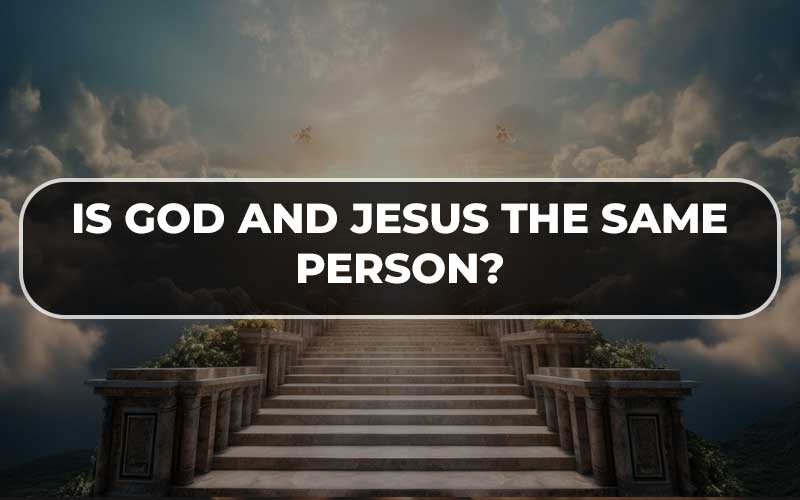Understanding the Trinity “God the Father, God the Son (Jesus Christ), and God the Holy Spirit” begs the question, “Is God and Jesus the same person?” This article deconstructs this theological debate by delving into the complexities of Christian doctrine.
The Trinity: Co-equal, Co-existent, Co-eternal
Exploring the Trinity’s foundational concept reveals a divine unity in the three persons. God the Father, Jesus Christ, and the Holy Spirit are co-existent, co-eternal beings. This sets the context for the study of the several identities included in the heavenly trinity.
A Modalist Perspective: God and Jesus in Unity?
Examining the modalist viewpoint, which posits God and Jesus as the same person, provides a contrasting narrative. Modalism suggests that God reveals Himself in different modes throughout history. However, this interpretation faces challenges reconciling with scriptural revelations, as we’ll explore in the subsequent sections.
Challenging Modalism: Scriptures Emphasizing Distinctions
Unveiling key scriptures that emphasize the separation between God and Jesus is crucial to understanding their distinct roles and identities within the Trinity.
God and Jesus at the Beginning
“In the beginning was the Word, and the Word was with God, and the Word was God. He was with God in the beginning.” (John 1:1-2) These verses accentuate the pre-existence of Jesus with God, emphasizing their distinctive roles.
Jesus’ Prayer before Lazarus
“Father, I thank you that you have heard me… that they may believe that you sent me.” (John 11:41-42) Jesus’ prayer underscores the Father-Son relationship, reinforcing their non-identical personas.
Jesus’ Return to the Father
“I came from the Father and entered the world; now I am leaving the world and going back to the Father.” (John 16:28) Jesus’ declaration about returning emphasizes the separate identities of God and Jesus.
Conclusion: Is God and Jesus The Same
Various biblical passages, including Jesus’ prayers and statements, underline the non-identical nature of God and Jesus. Their distinct roles and interactions within the Trinity affirm their separate identities. While the Trinity may be complex, scriptural clarity reveals God as one God in three persons.
Is Jesus considered God in the Trinity?
Jesus is indeed considered God within the Trinity, but the distinction lies in the mysterious nature of their relationship.
How does modalism differ from the traditional Trinity belief?
Modalism suggests God reveals Himself in different modes, whereas the Trinity posits distinct co-equal persons.
What role does the Holy Spirit play in the Trinity?
The Holy Spirit fulfills a unique role within the Trinity, emphasizing the diversity of functions among the divine entities.
Are there other biblical passages emphasizing the separation between God and Jesus?
Yes, various passages underscore their distinct roles, contributing to the theological understanding of their non-identical personas.
How can one reconcile the complexity of the Trinity with the clarity of scriptural teachings?
Understanding the Trinity requires navigating the complexities while relying on the clarity provided by biblical revelations.
Also Read: What Did Jesus Mean by “the Son of Man”?

